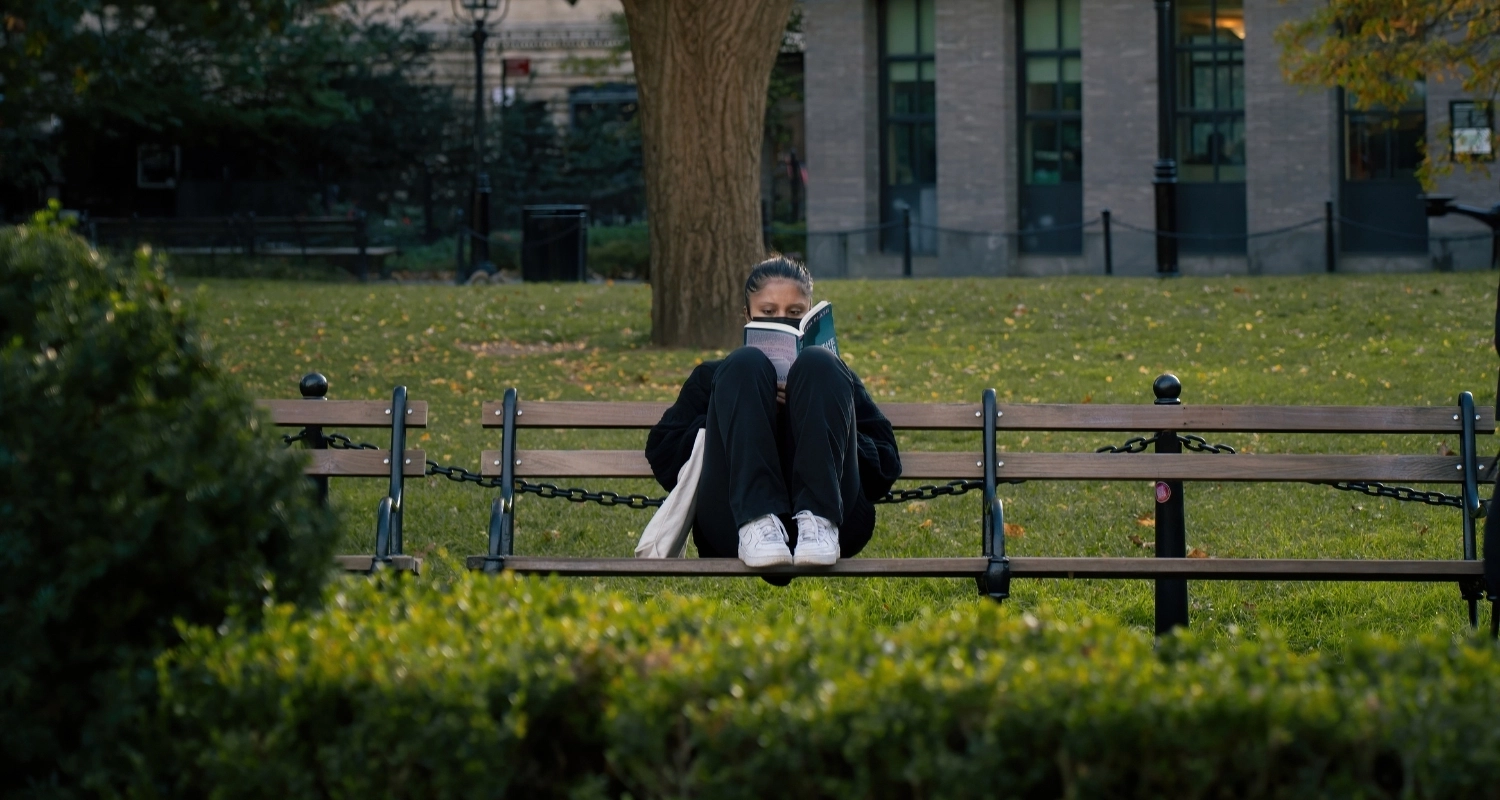
You cannot get through a single day without having an impact on the world around you. What you do makes a difference, and you have to decide what kind of difference you want to make.
Jane Goodall
Maybe you, too, have a clear and beautiful memory of a teacher, a boss or colleague, a neighbor, an aunt, or a friend—someone who was a role model in some area of your life.
Do you ever wonder: What will people remember about me? Would you like to have yourself as a boss? As a colleague? What will your legacy be? Which words would people use to describe you? Come with me as we begin to reflect on the concept of impact.
We control nothing and influence everything.
“Nothing” and “everything”—absolute words to be handled with care. But here, they are intentional, and I’ll explain why. Having an impact is not about branding or reputation (a very trendy word these days). If we look at the definition of impact, according to Treccani, it is “the influence that certain activities exert on factors…”. We realize that anything we do—or don’t do—has an impact on people, on the environment around us, on a broader context. Every action, no matter how small, has consequences that can ripple out further than we imagine. Like the butterfly effect, where a tiny local action can generate big changes over time or space.
Let’s think of impact not only as something measurable, but also as something emotional, social, and environmental. Even the most ordinary choices—such as the use of natural resources or the way we treat colleagues—can trigger a chain of reactions that shape reality. A kind word, for instance, can have an emotional impact, positively affecting someone’s mood, productivity, and, potentially, how they interact with others.
This means that every decision we make—whether conscious or not—affects the external world. We may not control everything, but we constantly influence our surroundings and the people we interact with. Being aware of this means taking responsibility for our actions and making more intentional choices, knowing they contribute to building the future, leaving a trace in memory, and creating our legacy.
Perhaps it’s because I was born into a big family and moved from city to city for my father’s work, but I’ve always observed the world through a systemic lens. Impact, when analyzed from any perspective—whether legacy, sustainability, emotions (how you make people feel and how you feel yourself), or purpose—is always tied to our identity, both individual and organizational, and to how we relate to the world and the people around us.
And what if we started from the end? Have you ever reflected on what people will say about you when you’re no longer here on this earthly plane? To help you think about this, let me tell you the story of how the Nobel Prizes were born.
At the end of the 19th century, Alfred Nobel, together with his brothers, invented dynamite—a discovery that brought them considerable wealth due to demand in the mining and construction industries. However, in 1888, when his brother Ludwig died, a French journalist mistook Alfred for the deceased and published an article titled Le marchand de la mort est mort—“The merchant of death is dead.” It is said that when Alfred saw his name on the front pages, he was shocked and began to seriously question what his legacy would be.
Despite being immensely wealthy, Nobel was dissatisfied, knowing that his invention was also being used for destructive purposes. This sense of guilt—or perhaps the desire to leave a meaningful legacy—led him to donate nearly all of his fortune to create the Nobel Prizes, honoring those who advanced peace, science, literature, and other fields.
I love this story because it’s a perfect example of how we can consciously choose who we want to be and take action accordingly. Behaviors can be changed, relationships can be managed with intention and good communication, so it’s never too late to change direction, adjust course, and reach new destinations.
Just the other day, while watching the news, I heard that by May we had already reached the environmental impact threshold projected for the entire year. We know we’ve overexploited the planet, going far beyond its limits. Now we can only acknowledge it and reflect on the responsibility we hold for the future, starting today. That was about environmental impact, but the broader idea of reflecting consciously on how our actions influence others has become part of daily life.
The impact I spoke of earlier is mostly about legacy, about what you leave humanity. But without being too philosophical or romantic (as I often tend to be), it also influences many aspects of everyday life. Simply by existing on this planet, you leave behind interactions, teachings—explicit or implicit.
As Maya Angelou said:
I’ve learned that people may forget what you said, people may forget what you did, but people will never forget how you made them feel.
How do people feel when they are around you? How do you inspire them? What do you stand for? Which three adjectives best describe you?
In organizations, when have KPIs for decision-making accounted for the emotional impact on employees? When has space been created so people could work better? When has the “people factor” walked hand in hand with the economic one? When have young people chosen second-hand clothes over buying fast fashion? When have schools integrated practices like creative writing or mindfulness alongside traditional academia?
This awareness has become a duty—towards the planet, towards people, and especially towards younger generations. When I do executive coaching and people start to change, what drives them to keep going and dare more is the positive impact this has on others and on the system as a whole. We’re so used to acting automatically that we forget to try new things to achieve different results.
I think my message is clear: the impact of those around us is much greater than we can imagine.
Here are some areas to consider:
Influence: The people we interact with shape our thoughts, beliefs, behaviors, and even actions. Many of these actions or decisions can change the course of our lives. If you have children, this concept is enormous: we are their biggest “influencers”! They absorb, or rather, take in even our thoughts—what is possible or not, what matters or doesn’t, how to take care of themselves and others, and so much more.
Support: I often use the concept of “sponsorship,” meaning encouragement. Think of Messi’s well-known story—always supported by his grandmother when everyone else said he’d never play football. Family, friends, mentors: sometimes one person’s support in difficult moments is enough. Our words and actions can help overcome obstacles and achieve goals.
Growth through learning: How many times have I received advice or suggested a book, TED Talk, poem, or a small piece of information that enriched someone’s growth? Our interactions introduce us to new scenarios, perspectives, and ideas, helping us develop a more open and possibility-oriented mindset.
Networking: Building relationships with others opens doors and opportunities we can’t even imagine. Networks can offer us collaborations, jobs, love, unique experiences, precious friendships, and much more.
Emotional impact: In this fragile and confusing socio-political moment, even a small act of kindness can have a powerful emotional effect. Empathy, listening, a few minutes of our time for colleagues, friends, or family can make a huge difference. Positive psychology even tells us that this contributes to our own happiness.
Legacy: I’ve spoken about this at length—the impact we have on others goes beyond our time on earth. Whether you have children or not, you still contribute to the world’s story. I have two daughters, and I feel more than just a parent—I feel like a mentor. I have more experience, yes, but for them to truly listen to me and value what I have to teach, they must first respect me as a person. For that to happen, I must be consistent—through what I do and who I am, not only through what I say. And yes… that’s a challenge!
Community: Expanding the view from family to society, the collective impact of people on communities can change cultural norms, drive social growth, or even influence historical events.
What does reflecting on impact require? A deep and honest knowledge of ourselves. At this point, we know ourselves—and if we are not authentic, the only person we’re fooling is ourselves. We carry a great responsibility in a historical moment that demands more consistency, authenticity, and truth every day.
For years, I’ve followed Thích Nhất Hạnh, a Buddhist monk who promotes a concept I love: interdependence. The potential of the butterfly effect is immense. It’s essential to approach our relationships with care and kindness, aware of the impact we have on others. Equally important is choosing who we allow to influence us, and how we influence others.
We still have so many beautiful things to do… stay Wyde!

